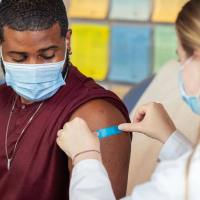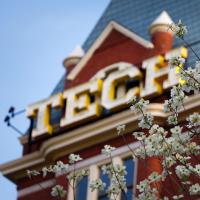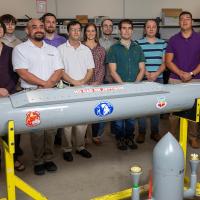3 min read
2 min read
3 min read
ChBE’s Ravi Kane leads a $4M grant to develop an influenza vaccine that provides long-lived protection against a broad range of viral strains.
1 min read
2 min read
7 min read
2 min read
6 min read
Legendary blues guitarist B.B. King famously said, “I wanted to connect my guitar to human emotions.” In a way, that’s exactly what researchers in the lab of Gil Weinberg are trying to do in developing their Expressive Robotic Guitarist (ERG).
3 min read
The funding is aimed at transformative biomedical and health breakthrough to provide cancer solutions.
5 min read















